GlobalWebIndex, a market research firm, on behalf of Ford Motor Company recently conducted an online survey across 11 countries in June 2016. In India, the firm conducted the survey on 1,023 respondents and the results aren’t surprising to say the least.
The study revealed that more than 67 percent of Indian consumers preferred fuel efficiency to performance while buying a new car. That isn’t hard to believe when you consider the traffic conditions in our congested cities. For many, the reason for preferring a more fuel efficient car was the desire to save money, while for others, it was the eagerness to be more environment friendly, the study revealed.
[ATTACH=CONFIG]n17015[/ATTACH]
Again, all these figures aren’t surprising when you take in to account the sad fact that most car buyers in the country are value-focused consumers rather than enthusiasts. The thrifty nature of these consumers also mean that almost 28 percent of the people would prefer waiting for the fuel prices to drop before they tank up. When asked about what they would do with the money save, most respondents said they’d put it in their savings or spend it on the family. The study also brought to fore the Indian consumers’ general wariness about fuel prices in the country. With constant fuel price revisions happening every month, most respondents said they do not believe that fuel prices will remain steady in the next 12 months.
[ATTACH=CONFIG]n17016[/ATTACH]
[ATTACH=CONFIG]n17017[/ATTACH]
[ATTACH=CONFIG]n17018[/ATTACH]
“We conducted this survey to learn more about what consumers’ attitudes are towards fuel efficiency when they are shopping for a new car. Fuel efficiency remains one of the top concerns. Drivers continue to be sensitive about fuel costs,” said Kevin Tallio, Chief Engineer, Engine Engineering, Ford Asia Pacific.
Most drivers in India said that they are willing to take the extra effort to change their behavior on the roads in the hopes of getting better fuel efficiency from their cars. More than 40 percent of the consumers surveyed said they will change their driving habits while 37 percent said that they will take public transport more often. I’m guessing none of these people stay in Delhi-NCR! Some respondents even said that they will try to drive less in the next 12 months. Well, good luck to that folks.
Interestingly, most of these respondents who said they want to save money by practicing all of the above mentioned methods were unaware of the long-term strategies on saving fuel. The study found that an astonishing 52 percent of people do not take into account the total cost of ownership, which includes fuel and vehicle maintenance.
Most consumers in India see their cars as tools rather than something which is to be cherished and obtain joy from. But this study says that the trend is slowly but surely changing. Of the people surveyed, 37 percent of the respondents said they would invest more money to buy a more fuel efficient car in order to save money on fuel later on. 34 percent of the respondents also said they are willing to downsize to a smaller car to save money on fuel and cost of ownership. When asked about hybrids or electric vehicles though, only 17 percent said they are willing to go down that route. The reason for this could be factors like high cost of ownership, availability of parts and range anxiety.
[ATTACH=CONFIG]n17019[/ATTACH][ATTACH=CONFIG]n17020[/ATTACH]
[ATTACH=CONFIG]n17021[/ATTACH]
[ATTACH=CONFIG]n17022[/ATTACH]
There is some ray of hope for these people however. The market has been slowly moving towards cleaner and more efficient cars. Majority of the car makers these days offer mass market cars with at least a mild-hybrid solution or a start-stop system along with brake energy regeneration. Manufacturers like Ford (EcoBoost), Tata (Revotron) and Volkswagen (TSI) are also offering cars with smaller, more efficient turbocharged engines. Maruti Suzuki will also join the fray with their upcoming Boosterjet engine.
While the survey proved what we already knew, the study also showed that 82 percent of city dwellers preferred performance vehicles as compared to 56 percent of rural residents and Ford says this figure played a huge role in bringing the 1.0-litre EcoBoost engine to our country. The EcoBoost series of engines has been winning awards across the world since its introduction in 2009. The 1.0-litre EcoBoost engine that is available on the EcoSport has in fact won the 2016 International Engine of the Year Awards for the fifth year in row. These engines, Ford says, provides the perfect blend of performance and fuel efficiency and can now be found under the hoods of more than 20 Ford nameplates across the world in cars rangine from the EcoSport to the iconic Mustang (although India only gets the V8).
[U][B]Numbers at a glance[/B][/U]
67 percent of consumers pay more importance to fuel efficiency rather than performance.
72 percent consumers cited the need to save money.
71 percent of the consumers said they wanted to be more environment friendly.
64 percent of the people were concerned about the high fuel prices in the country.
52 percent of the respondents said they regret not buying a fuel efficient car over a more powerful car.
28 percent of the respondents said they wait for fuel prices to drop before filling up.
40 percent of the respondents said they will change their driving habits to extract more efficiency from their cars.
37 percent of the respondents said they will take public transport to save more.
33 percent said they will drive less in the next 12 months.
66 percent of the respondents said they if they save 20 percent on fuel costs, then they would put the money in their savings.
57 percent of the respondents said they did not consider the cost of ownership while buying a new car
37 percent of the respondents said they will invest more to buy a more fuel efficient cars in the hopes that they will be able to save money on fuel later on.
56 percent of the respondents said their next car would be a more efficient one.
34 percent percent of the respondents said they will downsize to a smaller car the next time.
While 17 percent said they will buy a hybrid or an electric car.
[ATTACH=CONFIG]n17023[/ATTACH]



 Add your Comment
Submit Comment
Add your Comment
Submit Comment Asked by Nagaraj Maddodi
8 Answers
Asked by Nagaraj Maddodi
8 Answers
 Asked by Knight Rider
8 Answers
Asked by Knight Rider
8 Answers
 Asked by Radha Krishna
56 Answers
Asked by Radha Krishna
56 Answers
 Asked by Tarun Sundar
118 Answers
Asked by Tarun Sundar
118 Answers
 Asked by Balamuralikrishnan
4 Answers
Asked by Balamuralikrishnan
4 Answers
 Asked by Arc Academics
4 Answers
Asked by Arc Academics
4 Answers
 Asked by Mohit Datasec
15 Answers
Asked by Mohit Datasec
15 Answers
 Asked by Shyamal Deka
4 Answers
Asked by Shyamal Deka
4 Answers
 Asked by Amit Rai
3 Answers
Asked by Amit Rai
3 Answers
 Asked by Jiten Sarma
4 Answers
Asked by Jiten Sarma
4 Answers
 Car Care Guide: Tyre Care26 Jun, 2014 | By Team ZigWheels
Car Care Guide: Tyre Care26 Jun, 2014 | By Team ZigWheels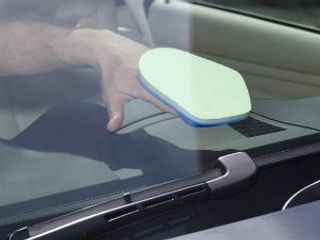 Windscreen and Window care27 Jun, 2014 | By Team ZigWheels
Windscreen and Window care27 Jun, 2014 | By Team ZigWheels Rat Protection11 Sep, 2014 | By Team ZigWheels
Rat Protection11 Sep, 2014 | By Team ZigWheels Basic Seat care27 Jun, 2014 | By Team ZigWheels
Basic Seat care27 Jun, 2014 | By Team ZigWheels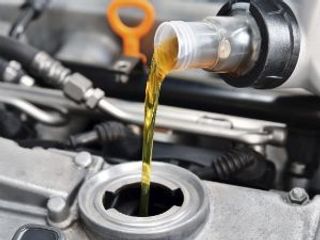 Getting the most from your Engine oil27 Jun, 2014 | By Team ZigWheels
Getting the most from your Engine oil27 Jun, 2014 | By Team ZigWheels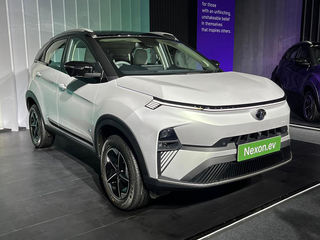 Reserve The 2023 Tata Nexon EV Facelift From Today!9 Sep, 2023 | By Team ZigWheels
Reserve The 2023 Tata Nexon EV Facelift From Today!9 Sep, 2023 | By Team ZigWheels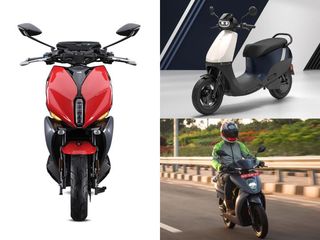 World EV Day 2023: All The Electric Two-wheeler Launching This Year Itself9 Sep, 2023 | By Team ZigWheels
World EV Day 2023: All The Electric Two-wheeler Launching This Year Itself9 Sep, 2023 | By Team ZigWheels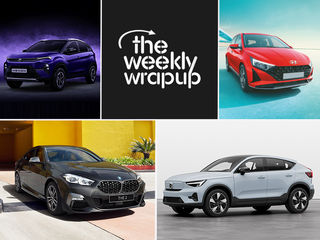 These Are Top Automotive Headlines Of The Week9 Sep, 2023 | By Team ZigWheels
These Are Top Automotive Headlines Of The Week9 Sep, 2023 | By Team ZigWheels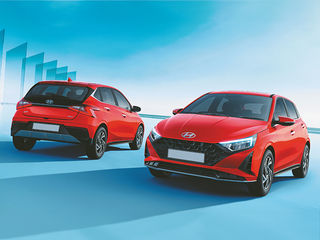 Here’s What The New Base Era Variant Of The 2023 Hyundai i20 Facelift Packs10 Sep, 2023 | By Team ZigWheels
Here’s What The New Base Era Variant Of The 2023 Hyundai i20 Facelift Packs10 Sep, 2023 | By Team ZigWheels Get Ready For The Four-cylinder 400cc Screamer From Kawasaki10 Sep, 2023 | By Team ZigWheels
Get Ready For The Four-cylinder 400cc Screamer From Kawasaki10 Sep, 2023 | By Team ZigWheels


